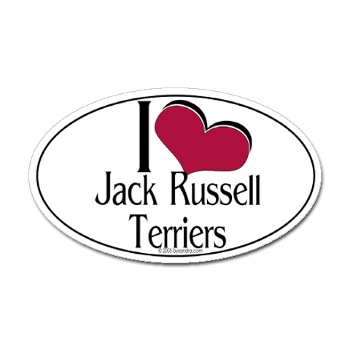|
|
 |
|

Dogs Need Good Food Too – Your Guide to Your Dog’s Diet
by David Riewe
Dogs’ nutritional needs may differ from ours. What we deem as healthy for us might
not sufficient or appropriate for them. To give your dog the best nutrition available you will have to understand their specific
needs and how to address them. After all, taking care of man’s best friend does take a little preparation and know-how.
Your
dog needs the essential nutrients to grow, go, and glow. If your dog does not receive proper nutrients it may result in poor
health, stunted growth, lethargy and shortened lifespan.
Dogs like most animal life forms need the six basic nutrients
for survival: carbohydrates, protein, fats, vitamins, and minerals. These nutrients serve different functions in sustaining
the health and well-being of your dog. This guide will elaborate on dogs’ need of these nutrients.
1. Proteins:
the building blocks of your dog’s health
Proteins are chemicals made of amino acids. Your dog can produce some of
these chemicals in their own bodies. The rest has to be supplied through food. The best sources of these amino acids are meat
and its byproducts. Dogs can extract proteins from these sources a lot easier than it would with plant sources.
Choose
feeds that have an adequate amount of protein in them to help your puppies and working dogs grow. Too much of this, however,
may cause kidney problems and has been known to cause temperament problems.
2. Fats: delivering other nutrients to
the body
Fat sound like a bad word – everyone tries to avoid it because it causes tons of health problems. Dogs,
however, just like man, also have a need for these nutrients – albeit in a moderate amount.
The right amount
of fat is needed to promote good skin health, and to transport fat-soluble vitamins. Fats are also essential to kidney function
and reproductive health. They make food tastier too. Too much fat will result in obesity and lethargy.
3. Carbohydrates:
doggie fuel
Fifty percent of your dog’s diet should consist of carbohydrates since they need it for their energy.
Corn is one of the more popular sources of this nutrient, along with soybeans. If this source is clean and of good nutritional
quality then that should be fine as well.
4. Vitamins and Minerals: keeping your dog healthy
It would have been
easier if your dog only had to splurge on vitamins and minerals to get optimal health. However, the opposite is true. Your
dog needs an exact amount of vitamins and minerals to be healthy. Although, your dog may receive these nutrients from food,
vitamin supplements for your dogs could be helpful. Specially formulated commercial feeds also make it easier for dog owners
to give their dogs good nutrition.
|
 |
|
TIPS FOR BUYING DOG FOOD
It is not enough for dogs to have a full stomach
after every meal. Besides a non-sedentary lifestyle, pets need proper nutrition in order to be healthy, happy and their coats
soft and glossy. The cost of dog food and its brand is only important if dogs can read or pay for his meal. The easiest and
best way to find out which food is best for man's best friend is to observe how their response is to the chow they take in.
The
following are tips that one should remember in feeding dog any kibbles, nibbles or whatever kinds of treat.
•
Chocolate is lethal to dogs.
Specifically the dark chocolate kind. The major components methylxanthine alkaloids and
theobromine in a regular chocolate is digested & excreted by humans in as little as 3 hours but the same compounds when
ingested by dogs stays inside them for 18 hours. This has been proven to be fatal. Symptoms of chocolate dog poisoning include
vomiting, excessive urination, hyperactivity, diarrhea, followed by seizure, coma, and death.
• Read the label.
Dogs
should have a diet rich in meat. When purchasing canned foods, look for chicken, turkey meat, pork meals or other animal by
products as these keep the dog's coat smooth and healthy. Dogs prefer foods which contain high vegetable protein levels because
these are easily digestible and are a great source of energy.
• Don’t give a dog a bone!
Contrary
to the popular nursery song, feeding bones to dogs is not a good idea. Small soft bones gnawed and eaten by dogs feel like
splinters inside their throat causing them to choke. Remember, dogs have short digestive tracts. They also have no saliva
amylase, an enzyme that is used to pre-digest starch.
• Dog food supplements are unnecessary…
...only
if one is sure that their dog receives a regular intake of complete and balanced food nutrients. Good sources of carbohydrates
include rice, corn, oatmeal, wheat. However, a highly specialized nutrition is only necessary if dogs do not get enough physical
activity or are currently undergoing a stressful routine change.
• Raw fish and eggs are a no-no.
Consistent
consumption of raw eggs make a dog’s skin breakout. In canine terms - since eggs diminish the biotin available in their
body – dermatitis and hair loss are its usual effects. Raw fish meanwhile results in thiamine-deficiency in a dog. Its
effects usually are loss of appetite, abnormal posture, weakness and in some cases death.
|
 |
|
|
 |
|
|
 |
|
|
|
|
|
| Awarded by: Next Day Pets |
|
|
|
|

|
|

|

|

|
| |
|
|

|
Brand new to Lucky Jacks....Our Forum!! Find useful articles, training
tips, chat and make friends! Please do more than browse! Sign up and join our community. Leave your comments and questions.
We hope you stick around!
|
| Awarded by: Next Day Pets |
|
|
|
|

|
| |
|
|
Copyright © 2003 - 2009
Lucky Jacks / Melissa Laro
All images property of Lucky Jacks
You may not copy or use them without written consent.
|
|

